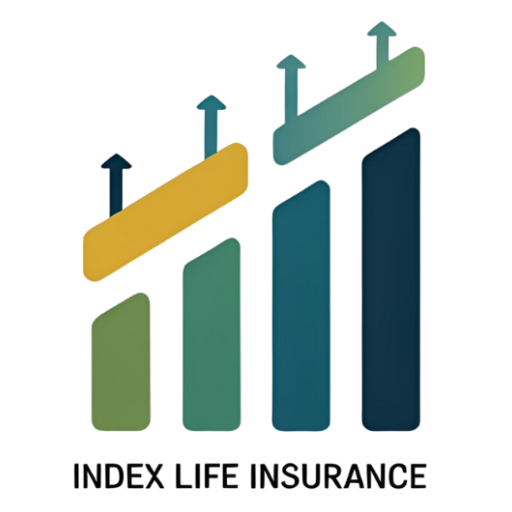When applying for insurance—especially health or life coverage—few phrases trigger more concern than “pre-existing conditions.” Whether you’re exploring a traditional term life policy, health insurance, or a more flexible product like Index Universal Life (IUL), understanding how pre-existing conditions affect your eligibility, premiums, and long-term benefits is essential.
This article explores how insurers define and evaluate pre-existing conditions, their impact on policy approval and pricing, and strategies for getting coverage despite health history. We’ll also look at how these factors uniquely influence IUL policies and what steps you can take to minimize their impact on your financial protection plan.
What Are Pre-Existing Conditions?
A pre-existing condition is any medical issue or diagnosis that existed before the start date of your insurance policy. This includes chronic conditions, past surgeries, mental health diagnoses, and even controlled conditions like high blood pressure or asthma.
Insurers use your health history to assess risk. If you’ve had—or still have—serious medical issues, you may be deemed a higher risk to insure, which can affect:
- ✅ Whether you’re approved or declined
- ✅ The premium you’ll pay (risk-based pricing)
- ✅ Exclusions or waiting periods attached to your coverage
- ✅ Eligibility for policy riders or additional benefits
Examples of Common Pre-Existing Conditions
Some conditions insurers watch closely include:
- Diabetes (Type 1 or 2)
- Heart disease or history of heart attack
- Cancer (past or present)
- High blood pressure or cholesterol
- Obesity or BMI over 30
- Depression, anxiety, or bipolar disorder
- Stroke or neurological disorders
- Autoimmune diseases (e.g., lupus, rheumatoid arthritis)
Each insurer evaluates these conditions differently, and many now look at how well the condition is being managed—not just the diagnosis itself.
Pre-Existing Conditions and Life Insurance: What to Expect
Life insurance underwriting involves a deep review of your medical history. If you have a pre-existing condition, expect the insurer to:
- Request detailed medical records from your doctor
- Review medications and past treatments
- Possibly request a paramedical exam and lab work
- Offer a rated policy (with higher premiums) or decline coverage based on severity
Not all pre-existing conditions result in denial. In fact, many people with controlled conditions are approved at standard or slightly increased rates—especially if their diagnosis is well-managed and stable.
How IUL Policies Handle Pre-Existing Conditions
Index Universal Life insurance (IUL) policies also go through medical underwriting. The impact of a pre-existing condition depends on:
- The size of the death benefit: Higher coverage amounts trigger stricter reviews
- Your overall financial picture: IUL is often used for wealth planning, and some carriers weigh net worth in underwriting
- How well your condition is documented and managed: Stable lab results and consistent care improve your risk profile
It’s important to know that underwriting decisions for IULs are highly individualized. A local or experienced advisor can help navigate the nuances of your application.
Strategies to Get Approved Despite Pre-Existing Conditions
Here are ways to improve your chances of securing insurance when you have a health history:
1. Work With an Independent Agent
They can shop your application across multiple insurers—some of which may be more lenient about certain conditions.
2. Provide Complete, Accurate Health Records
Omitting medications or diagnoses will backfire. Full disclosure allows underwriters to make informed, fair decisions.
3. Wait and Reapply After Stabilization
If you were recently diagnosed or had a major event (like a heart attack), wait 6–12 months while showing stability before reapplying.
4. Accept a Lower Coverage Amount
Start with a smaller policy to get approved, then layer on additional coverage later as your health improves or stabilizes.
5. Consider a Graded Death Benefit or No-Exam Policy
For high-risk applicants, guaranteed issue policies with waiting periods offer coverage without traditional underwriting—but typically at higher cost.
Pre-Existing Conditions and Health Insurance
Under the Affordable Care Act (ACA), health insurers cannot deny coverage or charge more due to pre-existing conditions. This rule applies to individual, family, and small business health plans purchased through the marketplace or directly from insurers.
However, short-term health plans and some supplemental plans may still impose exclusions or deny coverage based on medical history.
Policy Riders and Pre-Existing Conditions
Even if your base life policy is approved, pre-existing conditions may affect your eligibility for riders:
- Chronic illness riders: May be limited or excluded if you already show signs of qualifying conditions
- Long-term care riders: Often require clean medical histories to qualify
- Waiver of premium riders: May be restricted for applicants with recent or active disabilities
Review the fine print carefully and ask whether your health history will affect future access to living benefits.
Should You Disclose Pre-Existing Conditions?
Always disclose all known conditions on your insurance application. Failing to do so can lead to:
- ❌ Claim denial during the contestability period (usually the first two years)
- ❌ Lapsed policies due to incorrect rating and underfunding
- ❌ Legal liability for misrepresentation
Transparency protects both you and your beneficiaries from surprises when it’s time to claim benefits.
Pre-Existing Doesn’t Mean Uninsurable
Having a pre-existing condition doesn’t mean you can’t get life insurance or enjoy the benefits of a policy like IUL. It just means you need to approach the process strategically—by preparing documentation, working with the right advisor, and understanding how insurers evaluate your health risk.
With proper guidance, even individuals with health challenges can secure lasting coverage, build cash value, and create a legacy for their loved ones. Don’t let a diagnosis keep you from protecting your financial future.

